Jean Seberg: “Ooh! I want everyone to know—I got my wish!”
It was to the sound of the rain, the gentle tap-tap-tap on the windowpane, that she awoke. “Oh no!” Jean Seberg said, suddenly opening her eyes wide. a “It can’t rain. Not on my wedding day.” She jumped out of bed and ran to the window. It was pouring. Long, thin needles of rain lashed against the panes. She looked at the clock on her dresser. Six-thirty! Glancing around the bedroom she’d grown up in, the room that had been hers again for the past month, her eyes stopped at the closet. There, on the door, hung her oyster-white silk moiré wedding dress. On the chair where she’d carefully draped it the night before was her veil.
She thought, “Happy the bride the sun shines on—tears for the bride the rain falls on . . .”
But no, she said. This isn’t true. Rain is lucky. It is for me.
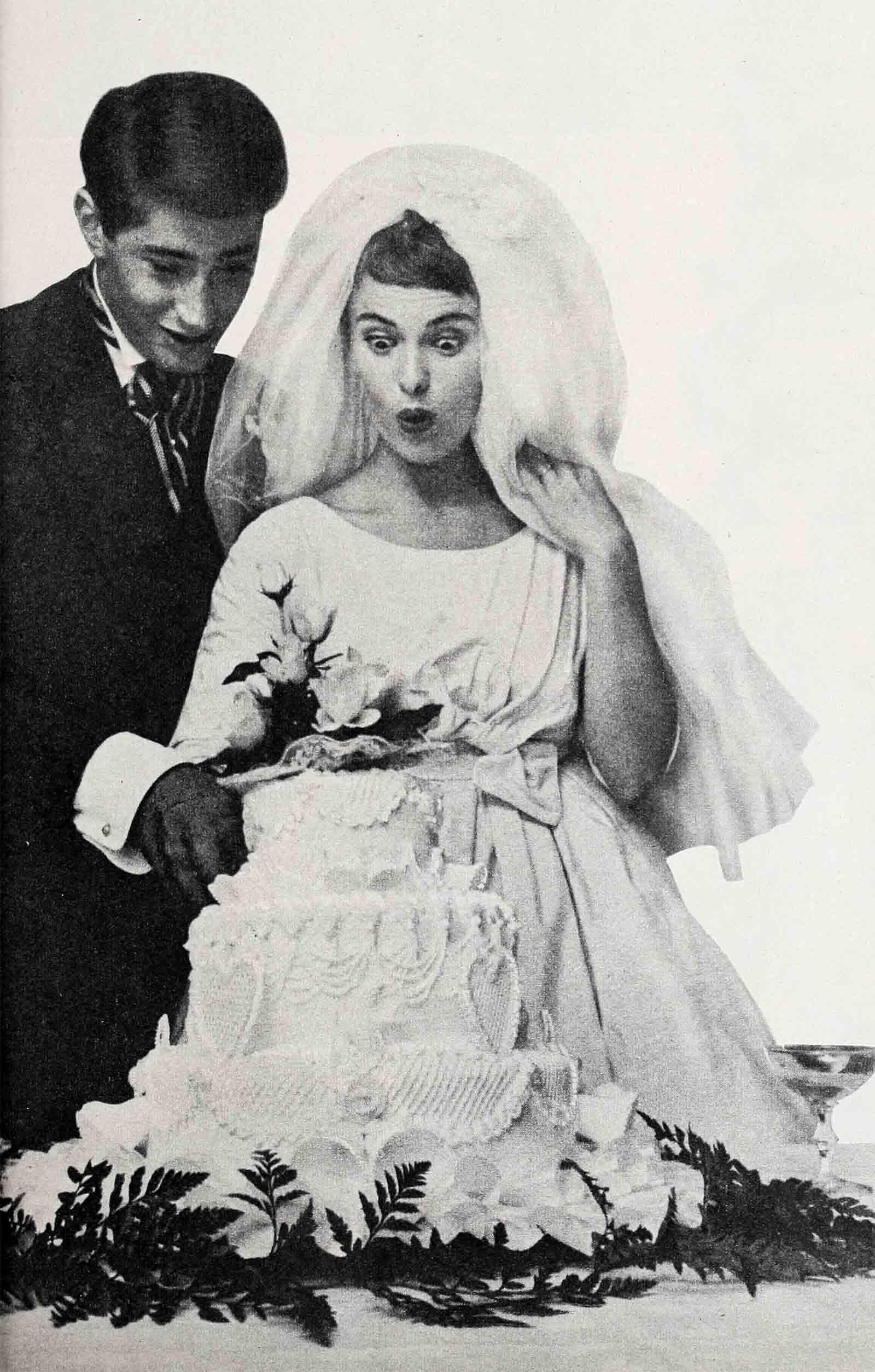
This was the kind of steady shower through which she always loved to walk, all by herself. Her mother’d say, “Jean, you’ll catch your death of cold.” But Marshalltown never looked prettier than after a rainfall, when its streets shone like patent leather and the shop lights sparkled on the puddles of water. In her slicker and rain hat, she would walk through the rain-soaked streets and daydream of the someday when she’d be a famous actress. She’d come home only when her sneakers were soaking wet. She had no idea then of marrying a tender, gay, impulsive man who could understand daydreaming. Then, he was a vague shape, a clouded vision. Now, she knew he was tall and lean with thick brown hair that kept falling onto his forehead. Francois—with his funny English and thick French accent.

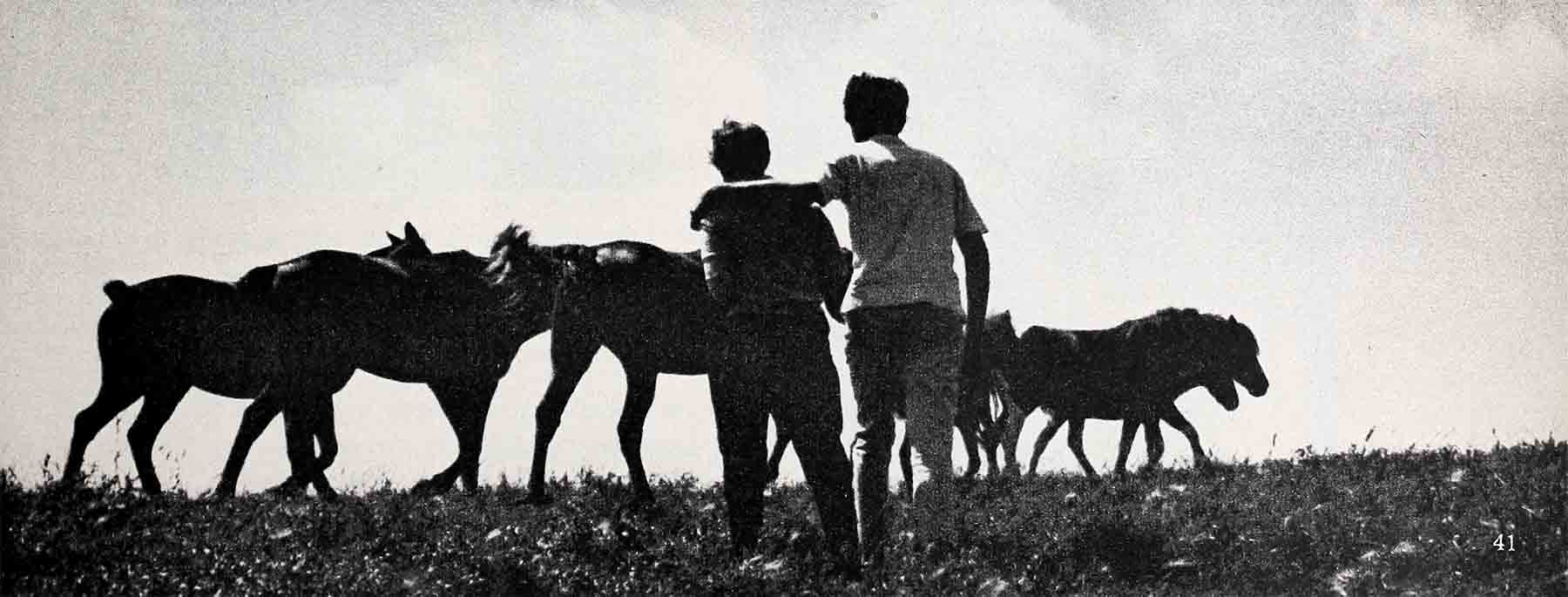
“Bonjour rain,” Jean whispered, feeling suddenly giddy. “Today I become Mrs. Francois Moreuil. So, come to my wedding. You’re welcome.”
How Francois liked the rain, too! And he loved long walks and bowling and golf and food and dancing and tennis and swimming and water-skiing . . . and thank heavens, Jean’d say, for the water-skiing. This was how they met.
“But how else?” Francois teased her in front of her friends.
Her friends, so anxious to meet her husband-to-be, had given them an old-fashioned party the very first day Francois arrived in Marshalltown—ten days before the wedding.
And all that following week the household was littered in gay tissue paper and silver ribbon. Presents, presents, presents—every where.
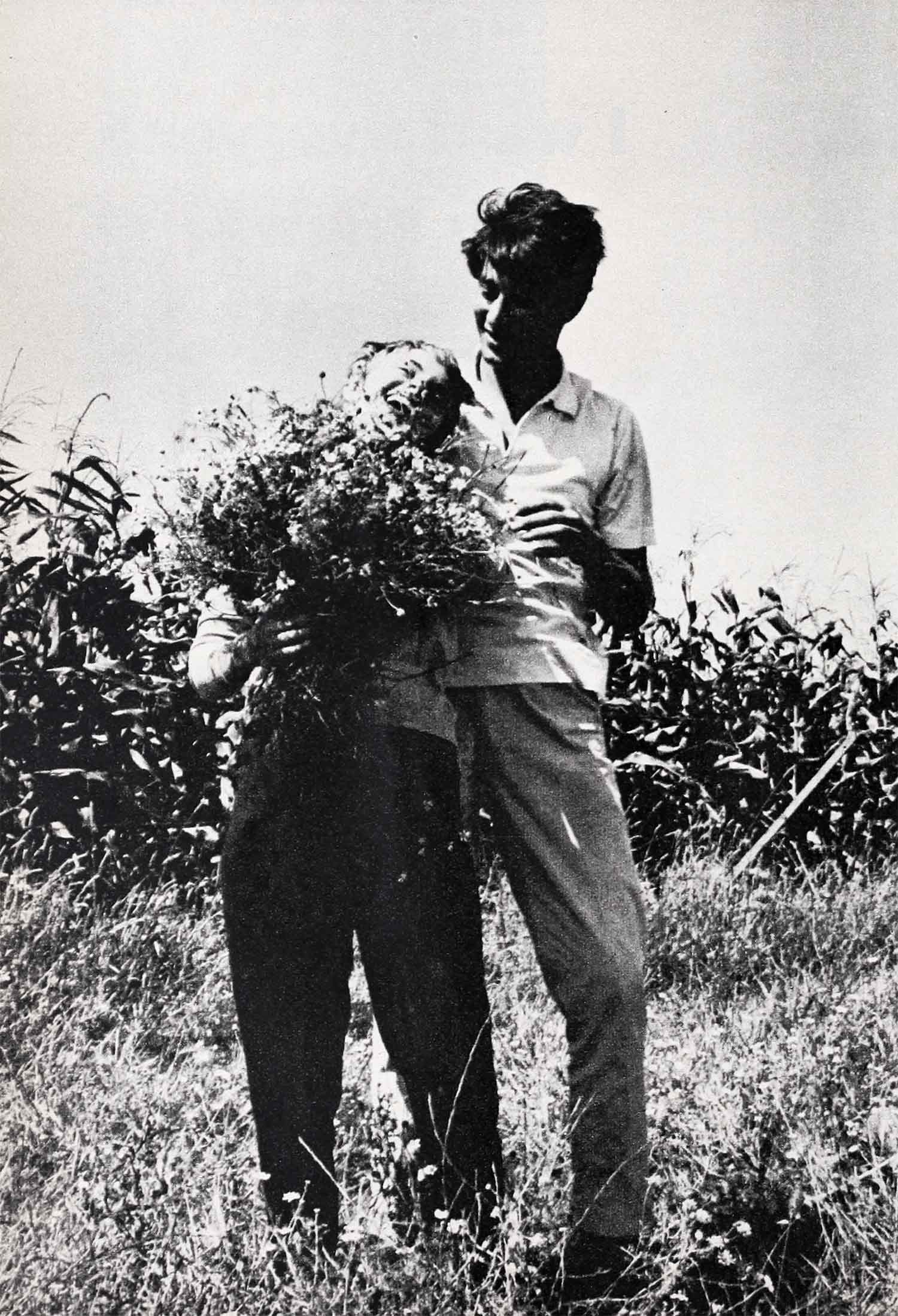
“Look, Coco,” Jean pointed out. “Look at this beautiful silver platter from Otto Preminger.”
But he looked at her and said, “But here’s another toaster,” and she made a face at him and he laughed.
Later that week they went to Lloyd’s, Marshalltown’s biggest restaurant, to check on the champagne Francois’ father had sent all the way from the vineyards of France.
Francois insisted on going over and over the arrangements for their reception with Lloyd Barlow, the owner. That impressed her mother, since her dad never took an interest in such things.
“Our goblet will go here,” Francois said, “where Jean and I will be sitting. It’s been in my family for years, and the bride and groom always drink a toast out of it at weddings.”
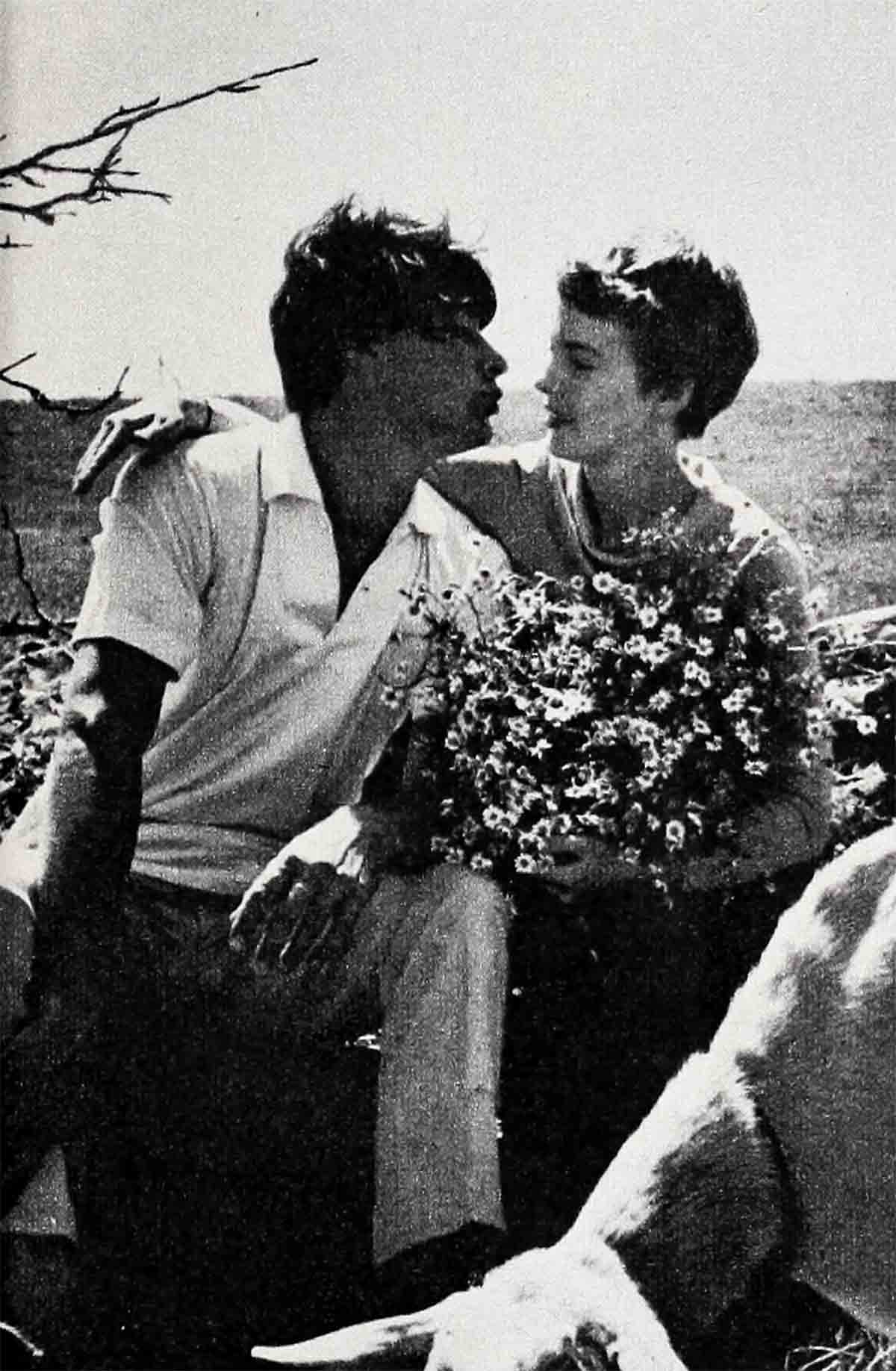
Mr. Barlow asked him about the turkey.
“Ah, the turkey,” Francois said excitedly, forgetting his English a little. “The turkey? . . . It should be almost the centerpiece for the table. Deboned and then put back together again.”
“But that’s impossible,” Mr. Barlow announced.
“Why?” Francois wanted to know. “I’ve seen it done so many times.”
“Well,” Mr. Barlow said, “maybe it’s done in France, but I wouldn’t think of doing such a thing to an American turkey.”
Francois began explaining in minute detail, waving his hands through the air, but Lloyd Barlow nodded his head and said, “Impossible.”
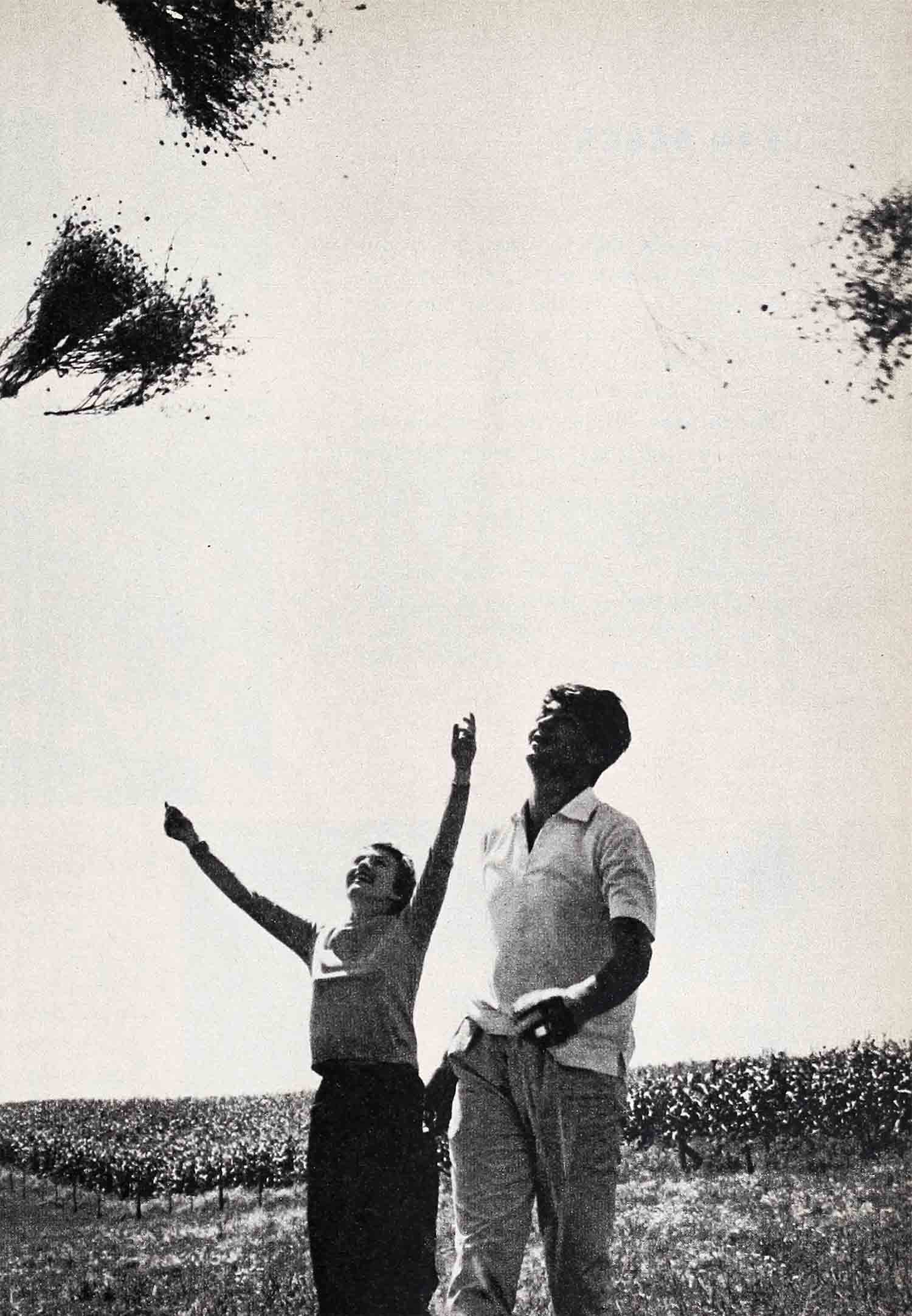
Taking a deep breath, Francois prepared for battle. But Jean grabbed his arm and took him aside, speaking quietly to him in French, and he agreed to what they called “the famous turkey compromise.” One turkey would be used for eating, it was decided, and another turkey would serve as the centerpiece.
All through that week before the wed- ding, there never was time. They barely made the dress shop on Friday afternoon. Jean had to try on a new Empire dress she had bought, and she was standing in front of the three-way mirror.
“Darling Jean,” Francois said to her, “the hem, it’s not straight.” And suddenly he lay flat, with his chin touching the floor, and stretched out to check her hemline. “There,” he said proudly, “on the right side, see? It’s a little bit too long.”
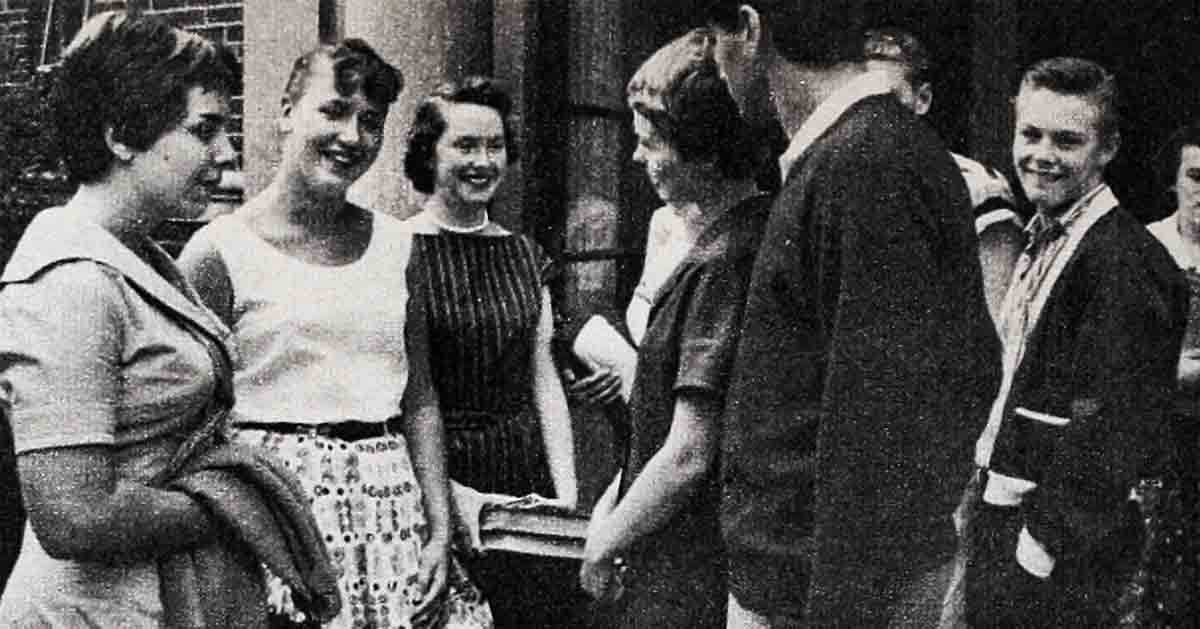
The salesgirl, stunned, looked at him as if he had descended from outer space. She got down on her knees and adjusted the hem. Francois dusted himself off.
Then, the Friday afternoon of the wedding rehearsal, Francois and Jean drove to the church, and Francois met Jean’s Aunt Ella Mae, the florist, and they went over all the flower arrangements. Francois wanted a French setting. He even drew a plan in water colors for Aunt Ella Mae. He requested “Two large bouquets of yellow roses here, on either side of the altar, and behind them, we would like tiers of potted ferns.”
Francois’ best men, Arnold des Contades and Edoardo Brufferio, flew in that day.
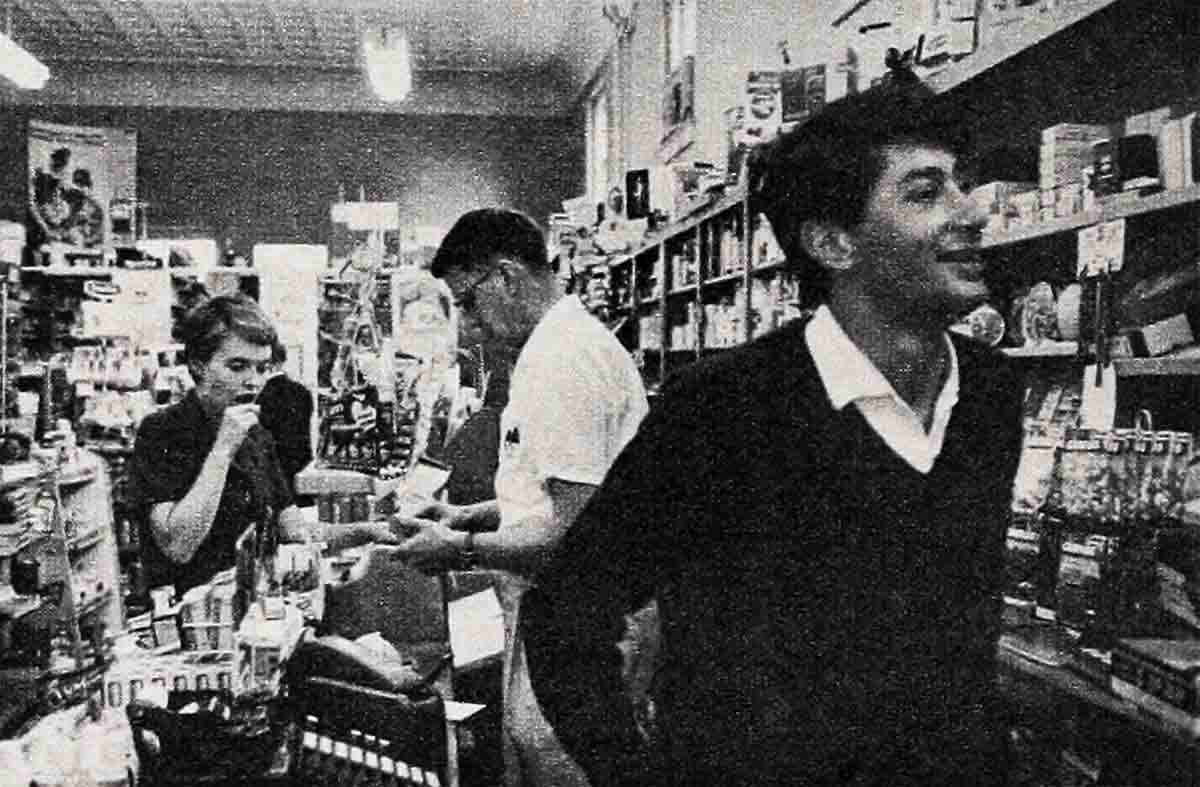
When Jean’s mom and dad came by, Jean said, “But you don’t need a rehearsal. You’ve been through all this only last month when Mary Ann got married!”
But it was her eight-year-old brother, David, the ringbearer, who stole the show that afternoon. Walking solemnly down the aisle in front of Jean’s maids of honor, Martha Glick and Lynda Scott, he stretched out his arms, pretending he was holding a make-believe pillow.
“But where’s the pillow?” Jean said. “I know I brought it.”
Her grandmother had sewn it for her, a white satin eiderdown pillow for David to carry the rings on.
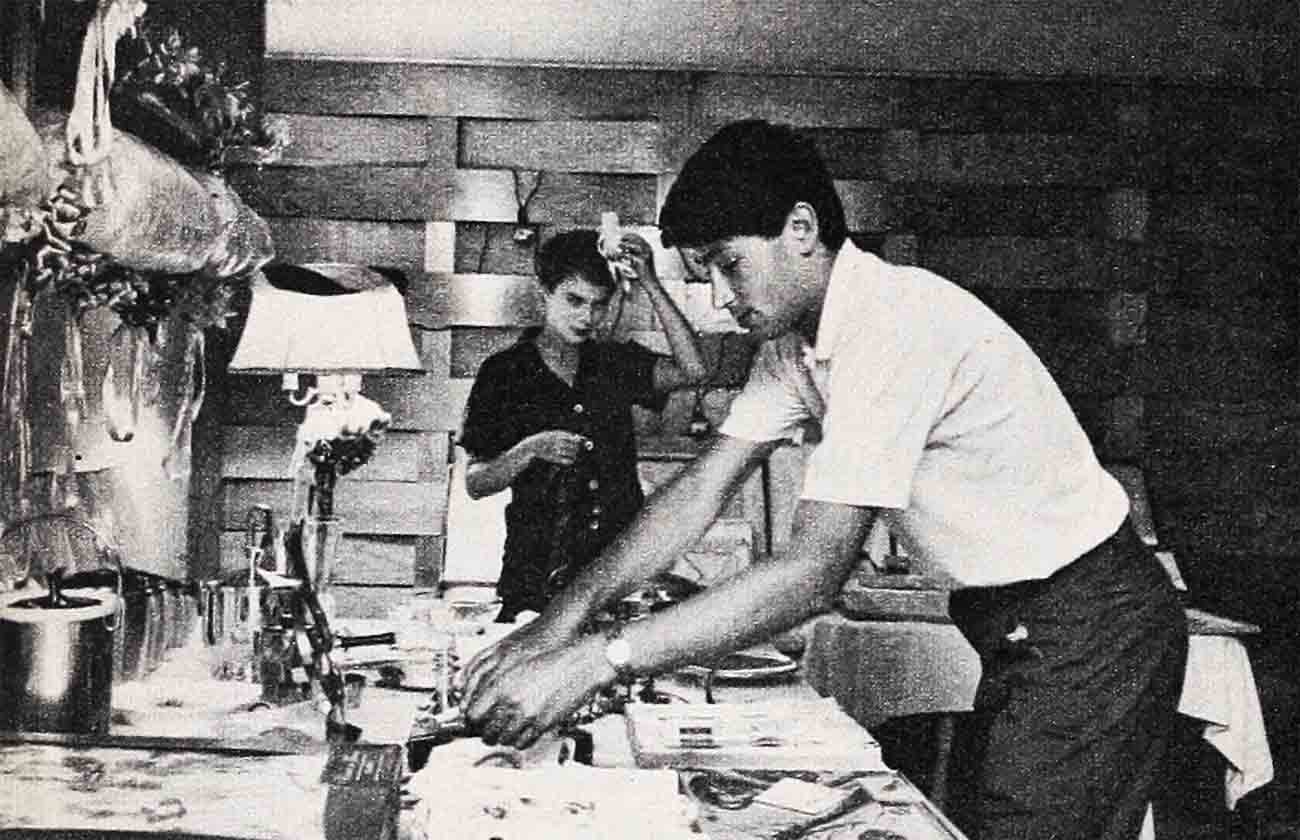
“I don’t want to dirty it,” David said. “It’s so pretty I thought we’d save it for the wedding!”
Everyone laughed, including Reverend Christenson.
But when she looked up at Francois, he was weeping. Oh dear, she wondered, what are we going to be like tomorrow!
After the wedding rehearsal ended, Jean whispered in his ear, and the two of them ran off. They drove to the outskirts of town and left the car by a fencepost, and they walked through the windblown Iowa fields, grinning happily, arms around each other, in the reddening glow of the late-afternoon sun.
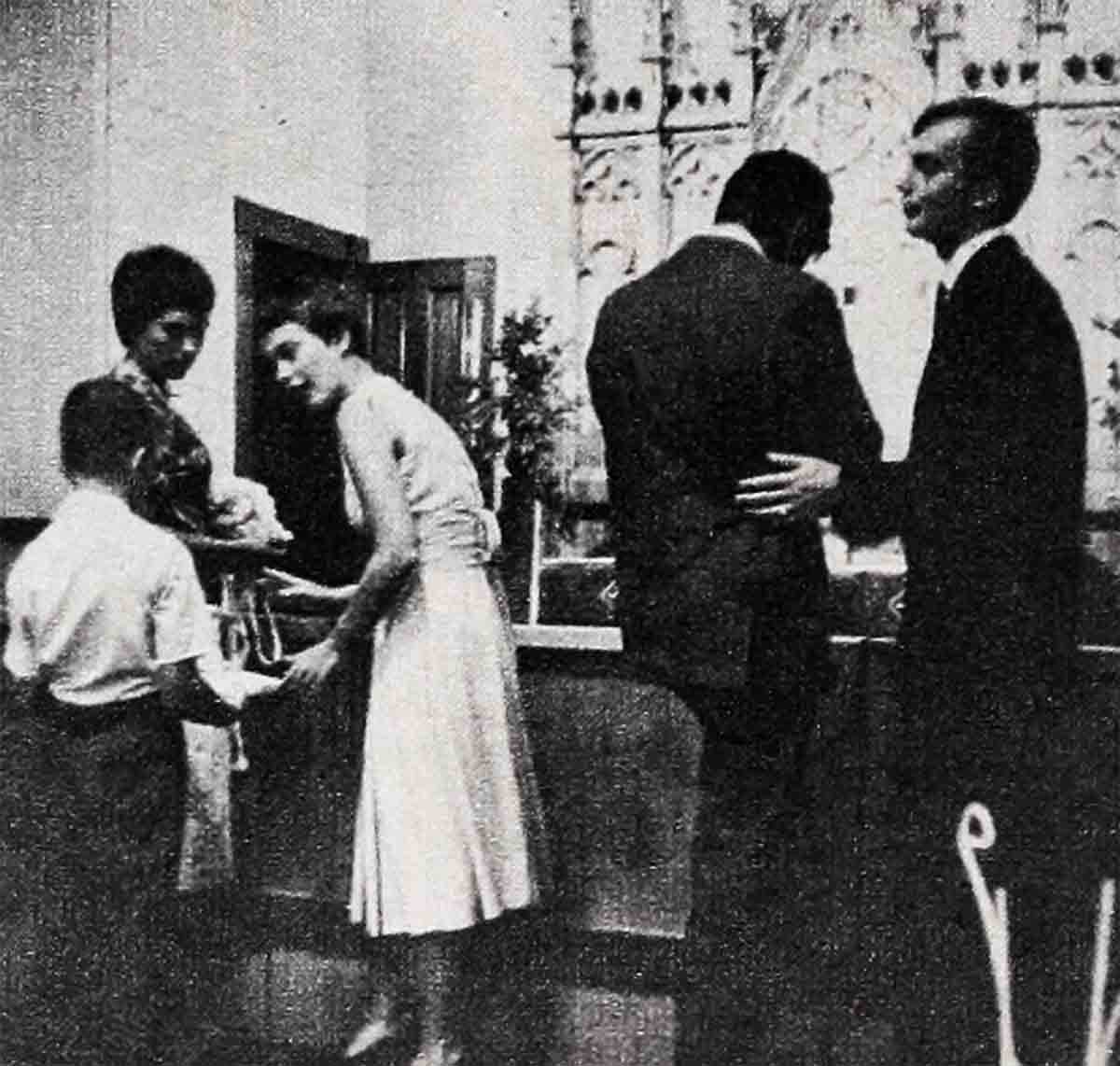
What a luxury, Jean thought, an hour with Francois, the two of us together . . . and alone.
“Look,” she said, pointing to a jumble of yellow wildflowers in the distance.
“Come,” he offered, “and I’ll pick you a bouquet for a bride.”
“I’ll race you,” she said. There—”
“Loses a kiss,” Francois winked.
They ran. He gave her a head start, but he soon caught up with her and put his arm around her waist, and the two of them ran along together until they tumbled down in the thick of the yellow flowerbed.
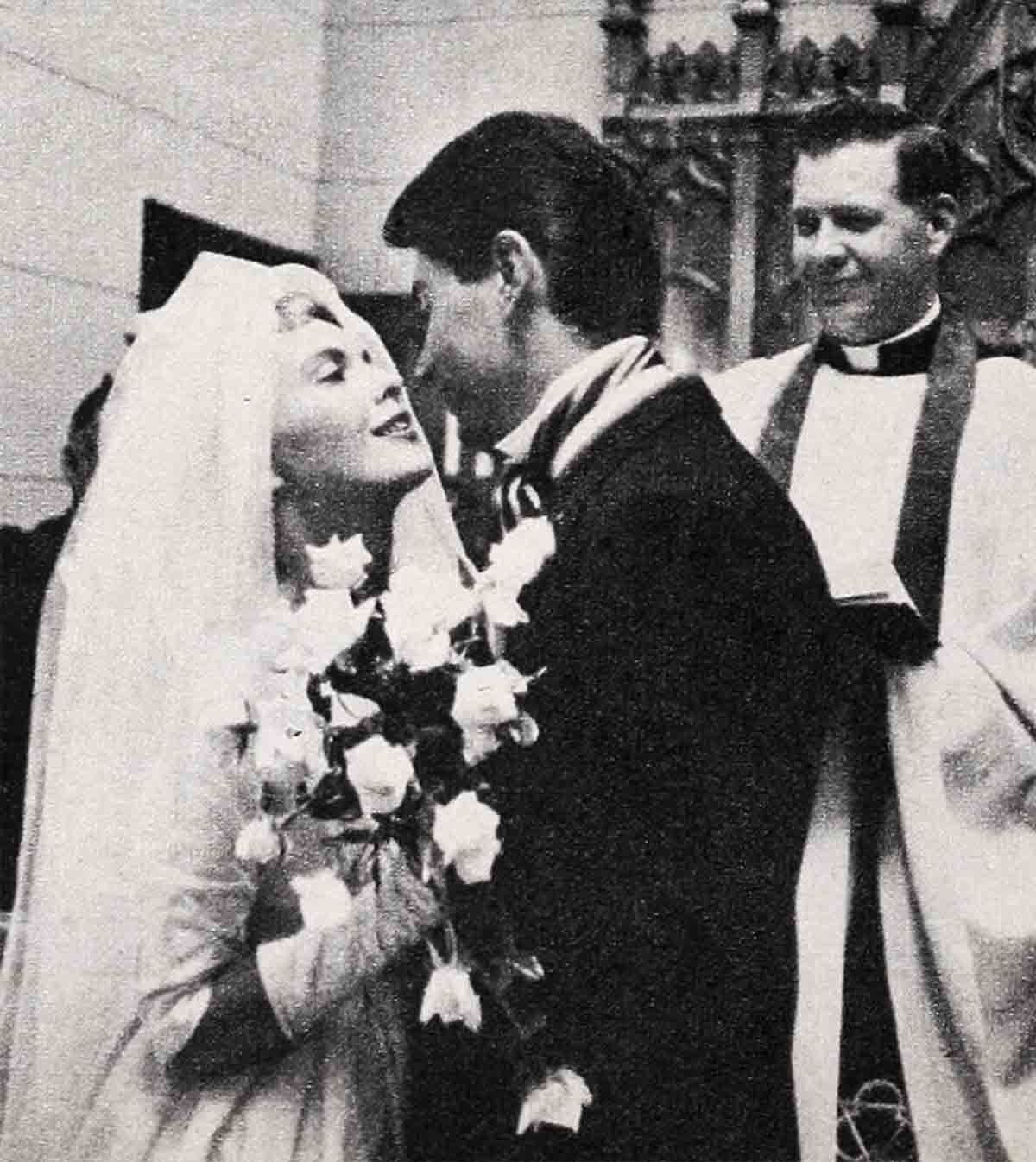
“Here,” Francois snapped a flower at its stem, “is a flower for the famous American actress.”
“And here,” Jean picked a flower between them, “is one for the famous French lawyer.”
The two of them giggled.
“But here’s a whole handful,” he said solemnly, “for my wonderful American wife!”
They kissed and lay there looking at the vast sky and the deepening colors of the sun, and in a while they got up and filled their arms with flowers.
“Oh Coco,” Jean said, “I’m so happy.” She buried her face in the flowers. “I wish . . . I wish today, this moment . . . could last forever.”
She smiled at him, and he put his arm around her, and she said, “But tomorrow will be wonderful, too. Oh Coco, these are the happiest days of my life.”
They walked for a while.
“Hey,” he said cheerfully. “Will they throw rice at the wedding? Like this?”
He began tossing the yellow flowers in the air and at her. She tossed some back, and suddenly they were throwing their armfuls of flowers everywhere, as high up as they would go, and the blossoms came raining down on them, raining in torrents . . .
The rain had stopped.
“Jean,” her mother called. “Are you coming down for breakfast?”
Jean pulled on her tartan bathrobe and went downstairs. She wasn’t hungry, but she wanted to be with her family, to see them all eating quietly together on the last morning of her life as Jean Seberg.
“Come on, Jean,” her brother Kurt teased. “Tell us where you’re going on your honeymoon!”
“Wouldn’t you like to know,” she teased back. But really they didn’t know. Francois might be called any day for the French Army.
They sat around the kitchen table then, not saying very much. Jean read the stack of telegrams near her plate and soon she went back upstairs to get things ready. There was the last-minute packing and a diary she wanted to write in and . . .
Suddenly the morning vanished.
Crowds of people mobbed the church—her friends from Marshalltown High, all the nodding acquaintances of her family and so many people she had never seen before. Everybody loves a wedding, Jean said to herself as the wedding car, a big black Cadillac, pulled up to the church.
Photographers called out to her, “One more, Miss Seberg.” Jean posed for pictures with her maids of honor, Martha and Lynda.
In the middle of the picture-taking, her mother hurried up to her, “Jean, Jean, you’ll never guess what’s happened to Francois. He was so nervous ‘he locked the car and left the keys inside. Now they’ve had to call the garage to get someone to break in.”
If it had happened to someone else, maybe it would have been funny. For a brief moment, Jean had an uneasy feeling that things weren’t going to go right. Tears welled inside her, and she thought, “I’m going to cry. I can’t help it, I’m going to cry because I want this day to be perfect.”
But before she had time for tears, her father was offering her his arm. Mrs. Stephen Melvin began playing Bach on the organ—as Jean had wanted—and the wedding procession started down the aisle.
At the altar banked with ferns and yellow roses stood Francois.
“How handsome he looks!” Jean thought. She smiled at him. The Reverend Christenson began the brief service and spoke to them quietly for a few minutes about the duties of marriage and its privileges and joys.
Soon, they were walking up the aisle, arm in arm, Jean and Francois. They waited to greet the guests in the vestibule of the church.
Jean’s father kissed her, shook hands with Francois. Her mother, crying, kissed her and then stood on her toes to kiss Francois’ cheek. Soon all the guests were coming toward them, shaking hands, kissing, congratulating. . . .
When the line ended, the rain began again, and Jean and Francois ducked out of the church while everyone showered them with rice—just the way they’d laughed about it the day before. In the car. Francois took Jean in his arms.
“I know,” she laughed. “I was warned. Henri Dauman, the photographer, told me the groom never kisses the bride at a French wedding.”
“Darling,” Francois said. “He was teasing! Oh, my love, you looked so beautiful that all the customs of France couldn’t have held me back.”
“And so you kissed me twice.”
“No, three times!” He added to the total then and there.
Leaning her head against his shoulder, Jean thought, “Dear God, thank you for making my dreams come true. I wanted to be an actress, and I’ve had my wish, and I’ve wanted to be a good wife, and now I’m Mrs. Francois Moreuil.”
Raindrops tapped against the car window.
“I wish,” Jean said in a whisper as she looked at her bride’s bouquet of white rosebuds, “I wish I could throw it to every girl who’s ever put on a slicker and a rain hat and walked for blocks and blocks—”
“What, darling?” Francois asked.
“Blocks and blocks in the rain and daydreamed,” Jean went softly on. “I wish all their daydreams could come true the way mine have.”
And Francois shrugged and tightened his arm around his puzzling American wife.
—CHRIS JOHNS
It is a quote. PHOTOPLAY MAGAZINE DECEMBER 1958




